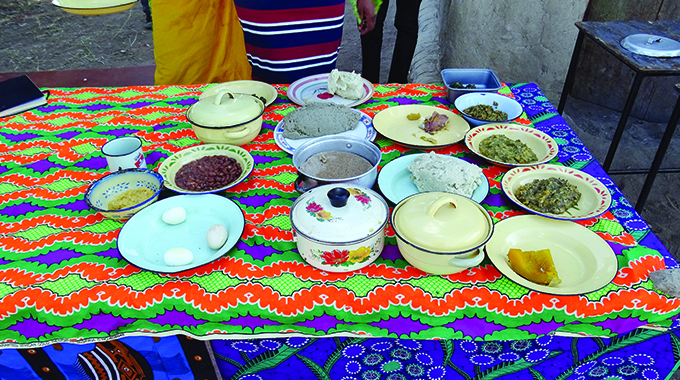Save the Children champions nutrition

Save the Children, an international children’s rights non-governmental organisation, has come up with various projects in Binga District, Matabeleland North province, to curb stunting as well as sustain improvements in nutrition behaviours for women and children under the age of five.
Binga District, one of the poorest in the country, has been hit by successive droughts for the past four years.
According to the latest Zimbabwe Vulnerability Assessment Committee (ZimVAC) report, 66,5 percent of the Binga population is food insecure while 25.5 percent children have stunting challenges.
Save the Children Health and Nutrition manager Mr Mthulisi Dube said as part of improving feeding and care practices for mothers, infants and children under two years old, his organisation is implementing various strategies in the most affected wards in the district under the Garden Trust Project.
This project is being implemented in Kariyangwe, Chinonge, Siachilaba, Simatelele and Kani wards.
‘’We’re supporting nutrition education sessions that are conducted by the nutrition department of the Ministry of Health and Child Care through drama, poetry and road shows. Sessions include cooking demonstrations to teach mothers how to prepare locally available diverse meals. Each month we cover a ward with a target of 10 000 people reached,” said Mr Dube.
Save the Children is also closely working with local men as well as traditional and religious leaders in the programmes.
In all the wards, the humanitarian organisation is supporting 50 men’s care groups and action-oriented groups every month.
“The objective of these meetings is to encourage positive male involvement in infant and young child feeding and care. Communication materials that showcase how other men have been a positive influence in their homes are discussed during these action-oriented groups,” said Mr Dube.
The chairperson of Miyanda men’s group, headman Miyanda Chilundu described the care groups as game changers in as far as the advancement of women is concerned.
“A lot of men in my area now appreciate the importance of children and women in our society. After attending Padare sessions, a lot of men are now helping their spouses in daily chores such as cleaning the yard, fetching water and cooking,” said headman Miyanda.
He said some men in the area used to have weird beliefs and prohibited their children from eating certain food like eggs and some selected portions of chicken.
“A lot of men and women now appreciate the nutritional value and benefits of foods like eggs, beef and other traditional foods. Before Save the Children training programmes, some men used to deny their children and wives these foods,” said headman Miyanda.
Ms Maria Mudenda (52) is one of the people who have benefitted from the Community Health Clubs being spearheaded by the organisation in the area.
Save the Children in conjunction with the Ministry of Health and Child Care is also implementing hygiene promotion activities.
Hygiene –related infections such as typhoid and cholera have become endemic in some parts of Zimbabwe and neighbouring Zambia but according to the project implementers, these diseases have not been reported in the Garden Trust wards of operation.
“Before the coming in of Save the Children, most households here did not have toilets and litter pits. Now, almost every household has a toilet and a rubbish pit. I also learnt how to practice good hygiene in my home. For example, I now know the importance of washing my hands after visiting the toilet,” said Ms Mudenda.
Under this programme, 1 600 households with pregnant and lactating women have also received training from agricultural extension workers.
“We aim to improve the delivery of agricultural extension services primed to improve the production and processing of micronutrient rich foods. This programme is tailormade to suit the livelihoods within each ward,” said Mr Dube.
As part of the organisation‘s response to the dire food situation in the district, Save the Children is also supporting 4 000 people from 947 households with cash. Under the cash transfer programme, each individual receives US$9 every month.
“This money is meant to procure food items such as cooking oil and mealie-meal as well as pay medical care expenses. We also monitor the usage of the money so that it is not abused,” added Mr Dube.
Binga district administrator, Mrs Lydia Banda-Ndethi commended Save the Children for complementing government efforts in alleviating hunger in the area.
“Save the Children has been working well with the government in alleviating food shortages in Binga district. We have serious challenges with food here in Binga,” said the DA.











Comments